See what our readers have accomplished: Page 1 | Page 2 | Page 3 | Page 4 | Page 5 | Page 6
From Upholstery Mike.
Portland, Oregon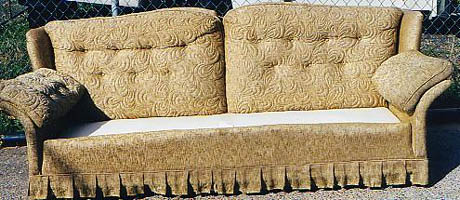
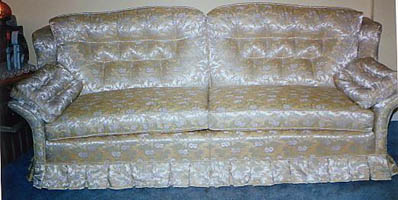
The sofa pictured was pretty far gone when I got it. It received a full make-over. It was stripped down to the frame and literally everything was tossed away. I started by webbing the bottom, and I prefer to place webbing edge to edge, no spaces between. I still hand-sew the springs in, though I know how to use a Klinch-it, and do a full 8-way tie with a good twine. And I find a good carpet pad over the springs stops any noise and you'll never feel the springs under the deck. I don't use much cotton anymore. Most filling is varied types of foam and Dacron polyester. I still undercover just about everything in muslin before my final cover. I can see all the glitches that way before the final cover goes on, just like the old days. Its important to use the right density and weight of foam for each particular job. I know from experience what feels better on the lower back as opposed to the head or seat. I also use smaller welt than most (4/32 cotton) as I prefer the daintier look.
Those are the salient points for what I consider a better quality upholstered piece. If you'll notice, I spent a lot of time explaining the webbing and springs. Its important that the foundation is well built. If the springs are not straight, no amount of padding will correct the problem. At some point sagging will occur.
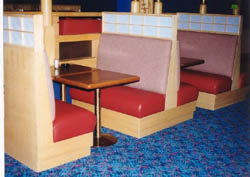
Restaurant booth recovery
The booths are made with a high quality light-oak plywood, poplar for the soji-screens on top (we used sheet fiberglass, sealed, instead of rice paper, so it could hold up to the bar-room use the booths get). These are spring seats, with board and foam backs.
Jacquie Scarola
Gulfport FL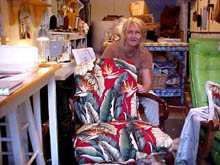
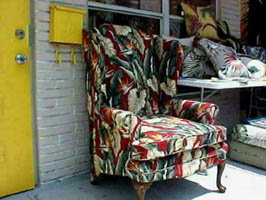
This is something I upholstered in "Bird of Paradise/Burgundy" barkcloth from Hawaii. It's the most popular of all my barkcloth's aside from the palm tree fabric. It's also great for slipcovers as it can be washed and put in the dryer with little change, as you can see in this slipcover I made for a wing back chair. My slipcovers tend to look very much like the item has been upholstered(as you can see!), as I am a certified upholsterer, but have never had formal training in slipcovers.
Eileen
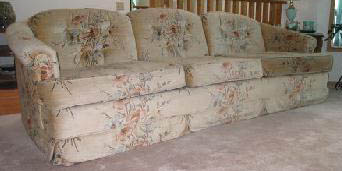
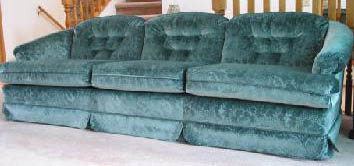
My name is Eileen and I've been studying upholstery for the last several months, both with the help of your website and several books and a beginners video I borrowed from the library. One of the books, the one by W LLoyd Gheen, I bought a copy of for myself because I really got a lot of valuable information out of it. The enclosed photos are before after shots of my first major project to be completed with your help. I'm really hooked, this is just the beginning. Thanks for your website and all the help available there.
